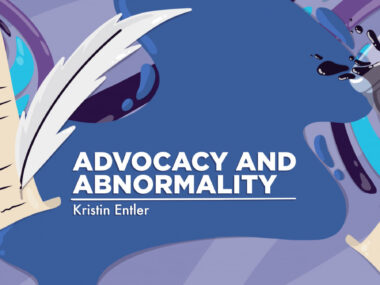Aspergillus infection linked to worse outcomes after COVID-19
Allergic reaction to the fungus also raises risk of hospitalizations, sepsis: Study
Written by |

Cystic fibrosis (CF) patients who are positive for the fungus Aspergillus and develop an allergic reaction to it experience worse outcomes after getting COVID-19, a study reports.
The allergic response, called bronchopulmonary aspergillosis (ABPA), increases the risk of hospitalization and sepsis, a life-threatening immune system reaction to an infection, data show. Treatment with antifungal medications is also a risk factor for worse outcomes, including hospitalization, intensive care unit (ICU) admission, and the need for non-invasive ventilation support for breathing.
The study, “A multinational report on SARS-COV-2 infection outcomes in people with CF and Aspergillus infection or ABPA,” was published in the Journal of Cystic Fibrosis.
Aspergillus infection, ABPA associated with aggravated long-term outcomes
CF is marked by the accumulation of thick mucus in the lungs and other organs, which can increase the risk of lung infections. Infection with Aspergillus is common in CF patients and ABPA has been associated with aggravated long-term outcomes.
In the study, researchers in Europe investigated whether CF patients with Aspergillus or ABPA are more susceptible to worse outcomes if they become infected with SARS-CoV-2, the virus that causes COVID-19.
They analyzed data from the European Cystic Fibrosis Society Patient Registry of CF patients who tested positive for SARS-CoV-2 from January 2020 to June 2021. Information was obtained from the patients’ annual examination in the year before they were infected with SARS-CoV-2, and following the infection.
The main goal of the analysis was the rate of COVID-19-related hospitalizations. Additional outcomes of interest included mortality, admission to the intensive care unit (ICU), and the need for oxygen and ventilation.
From an initial pool of 1,095 CF patients with COVID-19, 807 patients (73.7%) had data on Aspergillus infection or ABPA in the preceding year, and were included in the analysis.
Eighty (11.6 %) participants had severe disease, indicated by a percent predicted forced expiratory volume in one second, a measure of lung function, below 40%. Seventy-six patients (9.4%) received a lung transplant, and 190 (26.3 %) were on CFTR modulator therapy.
Of the 807 patients (median age of 23 years, 51.1% female), 153 patients had Aspergillus and/or ABPA (Aspergillus/ABPA group). Among these patients, 115 patients were positive for Aspergillus only, 27 had ABPA only, and 11 were positive for Aspergillus and ABPA.
Patients in Aspergillus/ABPA group were older
Patients in the Aspergillus/ABPA group were older than those without Aspergillus/ABPA (median 25 vs. 21.3 years). Lung function was similar between both groups before COVID-19, as was body mass index, a measure of body fat, and the number of patients who had received a lung transplant. CF-related diabetes was significantly more common in the Aspergillus/ABPA group (30.2 % vs. 21 %), which also showed a significantly higher rate of co-infection with Pseudomonas aeruginosa (56.08% vs. 43.66%) or non-tuberculous mycobacteria (6.78% vs. 0.97%).
In line with these findings, antibiotics — specifically oral azithromycin and inhaled antibiotics — and inhaled steroids were used significantly more frequently by the Aspergillus/ABPA groups. In contrast, patients with Aspergillus/ABPA used non-steroidal anti-inflammatory medications significantly less in the year before getting COVID-19.
After getting COVID-19, the Aspergillus/ABPA group experienced a higher rate of hospitalizations (32% vs. 20.8%), but no differences were seen in ICU admissions, the need for oxygen, and ventilation support. No differences in COVID-19-associated mortality were seen between the groups.
Statistical analysis showed the increased rate of hospitalizations was largely driven by pre-existing ABPA. The use of antifungal medication was significantly higher in the Aspergillus/ABPA group (8.5% vs 2.8%), but no differences were seen in the use of antivirals, antibiotics, and systemic (whole-body) steroids.
Sepsis risk significantly higher in Aspergillus/ABPA group
The risk of sepsis during COVID-19 was 7.78 times higher in the Aspergillus/ABPA group (6.9 % vs. 0.9 %) than in participants without the fungus or allergic reaction. However, sepsis occurred rarely, with four cases registered in each group.
The development of sepsis remained significantly higher after excluding patients with ABPA, supporting Aspergillus infection as a risk factor.
Other complications, namely pulmonary exacerbations and bacterial pneumonia (an infection that inflames the air sacs of the lungs), occurred at similar rates in both groups. Multi-organ failure occurred in one case in the Aspergillus/ABPA group and four cases in participants without Aspergillus/ABPA. Acute respiratory distress syndrome (ARDS), a severe complication marked by fluid buildup in the air sacs of the lungs, occurred only in the non-Aspergillus/ABPA group, in seven patients.
Compared with patients who didn’t receive antifungal treatment during COVID-19 (474 patients), those who did (18 patients) had a significantly higher rate of hospitalizations (83.3% vs. 17.4%), ICU admission (33.33% vs. 2.33%), and mortality (16.7% vs. 1.3%). The need for invasive ventilation was also significantly higher (22.22% vs. 1.5%).
Complications during COVID-19, namely sepsis and ARDS, were also significantly higher in the antifungal treatment group.
Overall, this study “highlights the importance of Aspergillus/ABPA in [people with CF], showing it to be an important risk factor for disease severity in COVID-19,” the team concluded.








